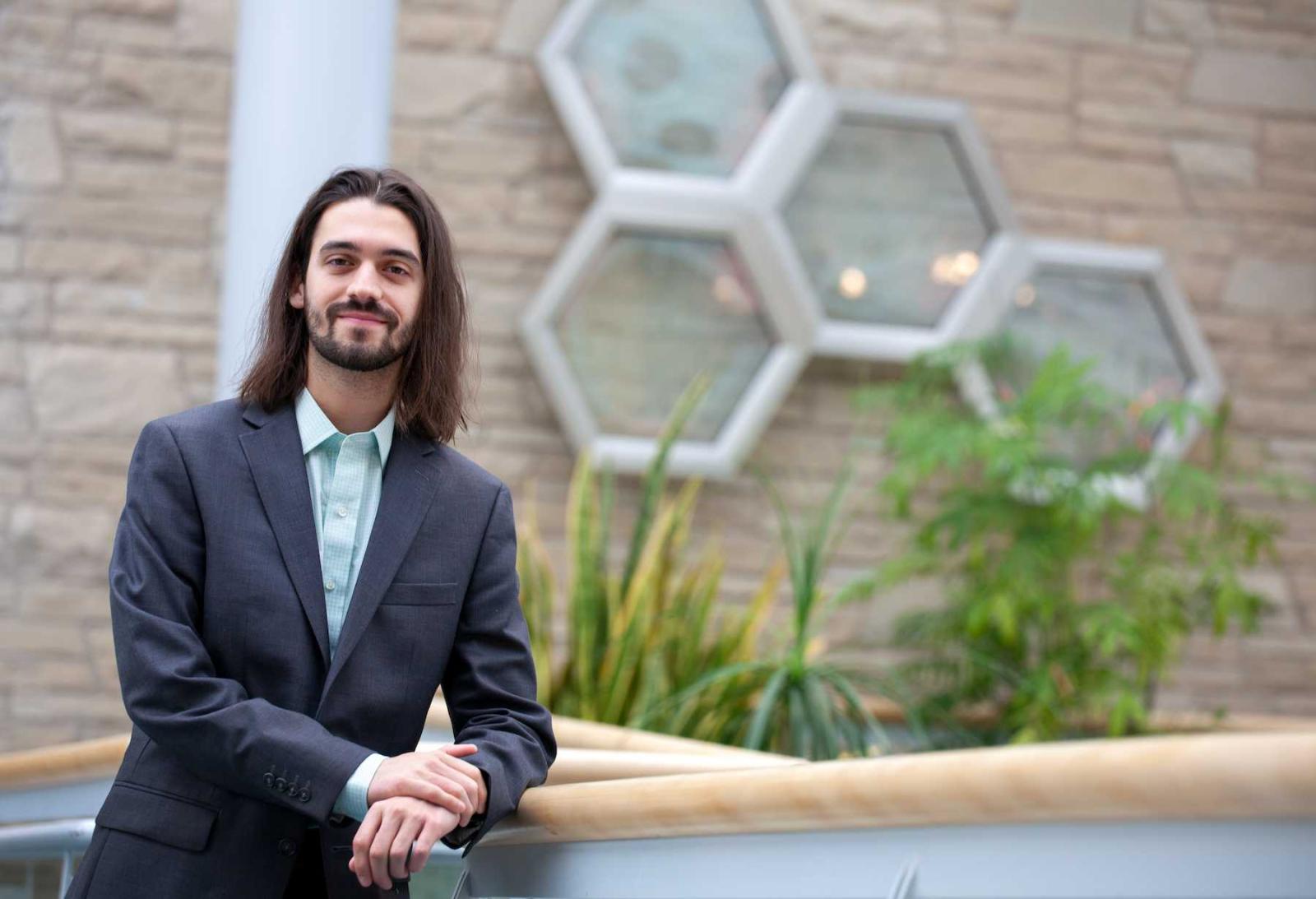Gaston Kaisin, a Lawrence University senior, has had his summer work included in a climate change assessment report by the Intergovernmental Panel on Climate Change (IPCC), a branch of the United Nations and the leading authority on climate change science.
An environmental studies and trumpet performance double major in his fifth year at Lawrence, Kaisin was introduced to the IPCC in an environmental studies class during his sophomore year, and it quickly shifted his academic focus.
“This sorta came at a time where I wasn’t really feeling too passionate about the trumpet,” he said. “I kind of felt like I was plateauing ... and after taking that class, I realized like, ‘OK, this is what I want to do.’”
Last summer, Kaisin applied for an environmental-themed REU (Research Experiences for Undergraduates) program through Oregon State University. He was referred to a professor who was a lead author on the next IPCC report. Kaisin was soon doing research with him and another professor on climate change assessment. His research focused on climate change and its effects on vulnerable populations.
“It was kind of soul-sucking work because you just kind of read about how people’s lives are being completely uprooted by climate change, but that database and that table that we created got onto this report and is basically supplementing their conclusions,” Kaisin said.
The IPCC only releases these reports every six to seven years, which assess climate change and recommend mitigation strategies to governments.
“I’m learning right now in my Global Environmental Politics class that we have all the solutions, we have the funding, we just don’t have the political support,” Kaisin said.
The experience, he said, has motivated him to focus his energies on campaigning and lobbying elected officials.
Kaisin hopes to do this by joining an organization devoted to such climate change work, saying his ideal organization would be centered on sustainability and clean energy.
Kaisin has expanded on his research for his senior capstone at Lawrence, which is about presenting the data he has found and using specific examples from his research while thinking about the broader context of the IPCC.
The research has taught him that drought, warming trends, floods, severe storms, and rising sea levels are especially worrisome, while crops, aquaculture, finances, farmland, and reliable food are most at risk.
“In my capstone paper, I show how this is key information for developing effective adaptation strategies because it reveals where efforts will matter the most and uncovers an effective path toward climate change adaptation and resiliency for the world’s most vulnerable groups,” he said.
Andrew Knudsen, professor of geosciences, applauded Kaisin for embracing the varied environmental-related science offerings at Lawrence and forging a path that led him to the IPCC research, and then bringing that back to the classroom for a deep dive as a capstone project.
"He demonstrated his ability to think broadly, creatively, and critically on a really awesome interdisciplinary project,” Knudsen said. “It was really cool to see him put into practice the skills and knowledge he has developed as an environmental studies major.”
Roots in music and science
Originally from Connecticut, Kaisin came to Lawrence because he liked that students can pursue two degrees simultaneously. He also liked Lawrence’s musical opportunities, having previously interned at the New York Jazz Academy teaching music to children.
“I had always been pretty conscious of climate change and environmental issues, so I knew I wanted to do something in that realm,” Kaisin said.
Along with trumpet and environmental studies, Kaisin has chosen chemistry as his disciplinary focus, and is active with the sustainable garden club.
"I know especially on the Lawrence campus that people here are very aware of environmental issues,” Kaisin said.
He encourages other students interested in environmental issues to explore the Environmental Studies or Environmental Science majors. And apply to summer programs similar to his REU. It can open new doors.
While he’s pursuing environmental work, Kaisin said his trumpet will continue to be a big part of his life. His work on climate change has increased his passion for music, and vice versa.
“I really think that just having something else to do kind of informed my music in that, ‘OK, I have more life experience now,’” he said. “Getting away from that helps free up your mind.”
Gaston Kaisin
Class Year: 2022
Major: Environmental Studies and Music Performance (trumpet)
Hometown: Guilford, Connecticut
Activities: SLUG, music performance



